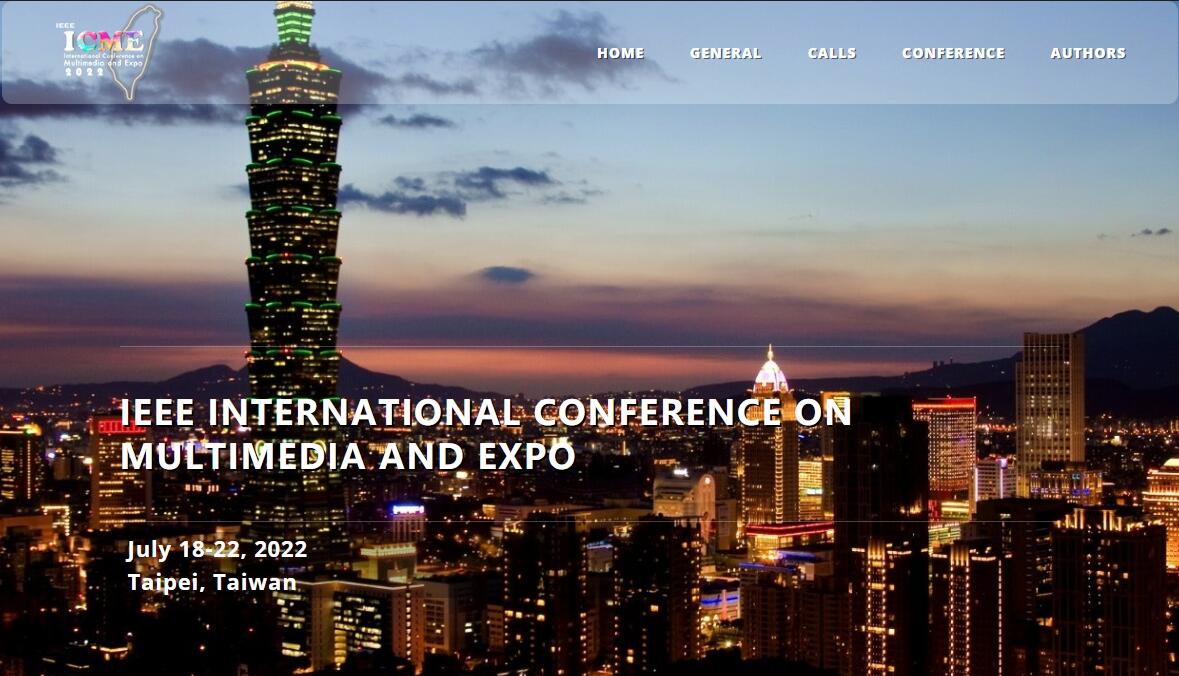
Call for Papers: IEEE ICME2022 Special Session
IEEE International Conference on Multimedia and Expo Special Session on
Robust Representation Learning for Multimedia Image Understanding
Abstract
Representation learning has always been an important research area in pattern recognition. A good representation of practical data is critical to achieve satisfactory performance. Broadly speaking, such presentation can be “intra-data representation” or “inter-data representation”. Intra-data representation focuses on extracting or refining the raw feature of data point itself. Representative methods range from the early-staged hand-crafted feature design (e.g. SIFT, LBP, HoG, etc.), to the feature extraction (e.g. PCA, LDA, LLE, etc.) and feature selection (e.g. sparsity-based and submodulariry-based methods) in the past two decades, until the recent deep neural networks (e.g. CNN, RNN, etc.). Inter-data representation characterizes the relationship between different data points or the structure carried out by the dataset. For example, metric learning, kernel learning and causality reasoning investigate the spatial or temporal relationship among different examples, while subspace learning, manifold learning and clustering discover the underlying structural property inherited by the dataset.
Above analyses reflect that representation learning covers a wide range of research topics related to pattern recognition. On one hand, many new algorithms on representation learning are put forward every year to cater for the needs of processing and understanding various practical multimedia data. On the other hand, massive problems regarding representation learning still remain unsolved, especially for the big data and noisy data. Thereby, the objective of this special issue is to provide a stage for researchers all over the world to publish their latest and original results on representation learning.
Scope
Possible topics include but are not limited to:
- Metric learning and kernel learning
- Probabilistic graphical models
- Multi-view/Multi-modal learning
- Applications of representation learning
- Robust representation and coding
- Deep learning
- Domain transfer learning
- Learning under low-quality media data
Important Dates
- Regular Paper submission (including Special Sessions): Dec. 12, 2021 (Extended to December 22, 2021)
- Regular Paper acceptance notification: Mar. 5, 2022
- Industry/Application track paper submission: Mar. 21, 2022
Organizers
Guangwei Gao, csggao@gmail.com, Nangjing University of Posts and Telecommunications, China
Jing Xiao, jing@whu.edu.cn, Wuhan University, China
Liang Liao, liang@nii.ac.jp, National Institute of Informatics, Japan
Junjun Jiang, jiangjunjun@hit.edu.cn, Harbin Institute of Technology, China
Juncheng Li, junchengli@math.cuhk.edu.hk, The Chinese University of Hong Kong, China
Shin'ichi Satoh, satoh@nii.ac.jp, National Institute of Informatics, Japan
Submission Instructions
Comments
By submitting the paper, the authors guarantee that if the paper is accepted, it will be presented at the conference by one of the authors, except in case of emergency as determined by the Technical Co-Chairs. Furthermore, the presenter must register for the conference at one of the non-student rates offered, and must register before the deadline given for author registration. Failure to register before the deadline will result in automatic withdrawal of your paper from the conference proceedings and program. Failure to present the paper by an author in person will result in the paper not appearing in IEEE Xplore, and IEEE will retain the copyright. Also, the list of missing authors will be passed to the ICME Steering Committee.
All papers will go through the same review process as the regular papers submitted to the main conference to ensure that the contributions are of high quality. If a special session has more than 5 papers being accepted, some of the papers will be moved to the regular paper sessions of the conference.